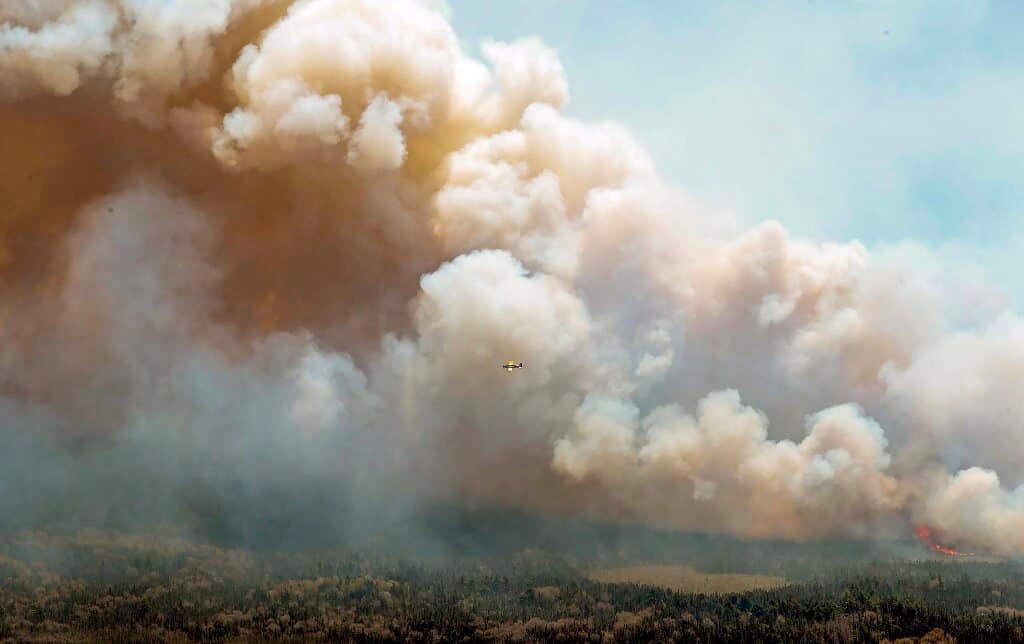Quebec forest fires means high pollution levels from Beaverton to Oshawa
Published June 6, 2023 at 12:26 pm

Environment Canada has issued a Special Air Quality Statement for Durham Region with high levels of air pollution possible from forest fires raging in Quebec.
Smoke plumes from the fires is expected to mean deteriorated air quality through most of the week, though air quality and visibility due to wildfire smoke can fluctuate over short distances and can vary considerably from hour to hour.
Wildfire smoke can be harmful to everyone’s health even at low concentrations and Environment Canada is cautioning residents to continue to take actions to protect your health and reduce exposure to smoke. People with lung disease (such as asthma) or heart disease, older adults, children, pregnant people, and people who work outdoors are at higher risk of experiencing health effects caused by wildfire smoke.
Stop outdoor activities and contact your health care provider if you or someone in your care experiences shortness of breath, wheezing (including asthma attacks), severe cough, dizziness or chest pains. Stay inside if you are feeling unwell and experiencing symptoms. Keep your indoor air clean. Keep your doors and windows closed if the temperature in your home is comfortable. Use an air purifier with a High Efficiency Particulate Air (HEPA) filter in a room where you spend a lot of time.
If conditions worsen the advice from Environment Canada is to take a break from the smoke by finding a location in your community with clean, cool air such as a library, shopping mall or community centre. If you must spend time outdoors, a well-fitted respirator type mask (such as a NIOSH certified N95 or equivalent respirator) that does not allow air to pass through small openings between the mask and face, can help reduce your exposure to the fine particles in smoke, which generally pose the greatest risk to health.
Respirators do not reduce exposure to the gases in wildfire smoke so it is important to listen to your body and reduce or stop activities if you are experiencing symptoms. Be sure to check on people in your care and those around you who may be more susceptible to smoke.
Review your wildfire smoke plan and make sure you have enough medical supplies if the smoke continues to impact your community.
Visit www.airhealth.ca for information on how to reduce your health risk and your personal contribution to pollution levels, as well as for current and forecast AQHI values, and continue to monitor alerts and forecasts issued by Environment Canada.
insauga's Editorial Standards and Policies advertising





